Mumbai, commonly referred to as the financial capital of India, is a complex site. Some of the most affluent individuals and businesses sit opposite poverty, low-quality health service delivery, and environmental degradation-the list goes on. Here again, NGOs find a space within this maze for their contributions and provide a much-needed supplement to governments in these spaces of social development.
The following article describes in detail seven key Government NGO in Mumbai along with their mission statements, their activities, and interaction with the government.
Role of Government NGO in Mumbai
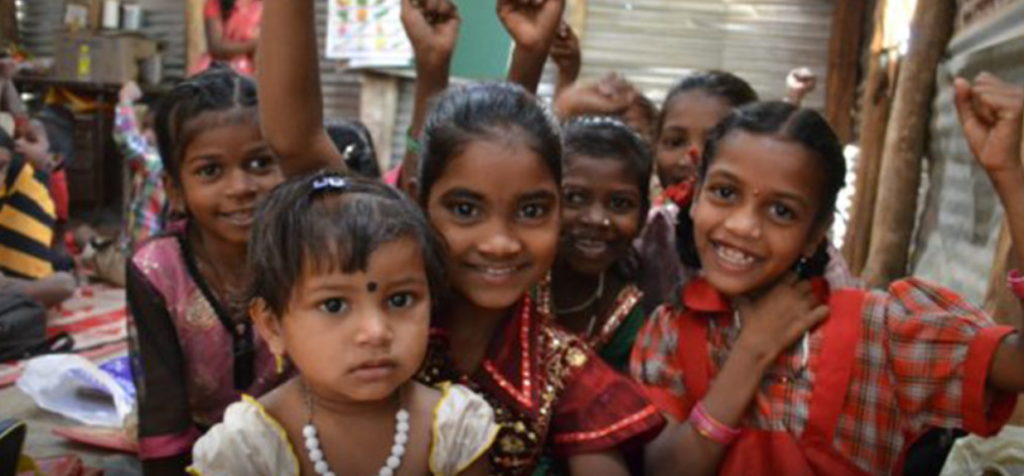
Social Development and Welfare: NGOs in Mumbai have a vital role to play in social development and welfare. They undertake many activities that raise the tide of the social lives of marginalised groups. Their work cuts across many sectors, such as:
- Education: Most NGOs provide educational opportunities to deprived children. They run schools, tutoring programs, and vocational training for youth empowerment.
- Health: Many NGOs help improve health conditions through the provision of medical care, health education, and nutritional support.
- Women Empowerment: Several organisations are empowering women through skill development, legal aid, and advocacy against domestic violence.
- Environmental Conservation: It has a range of NGOs undertaking initiatives on conservation and sustainability in very degraded and challenged Mumbai.
Prominent Government NGO in Mumbai
Akanksha Foundation
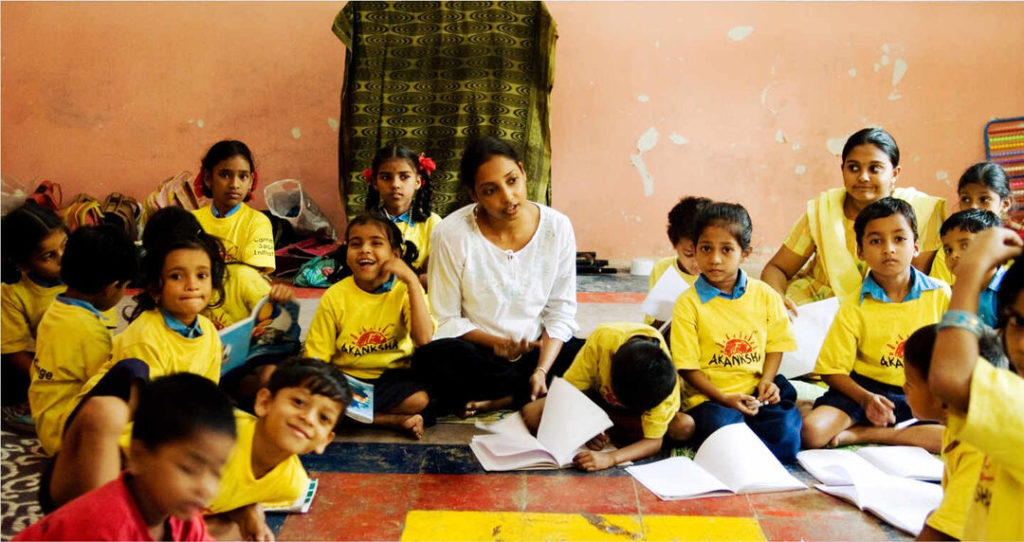
Overview: Akanksha Foundation Background Overview: Started in 1991, the organisation focuses on reaching students from low-income families. With a portfolio of schools and after-schools operating over and across Mumbai and Pune, a well-rounded holistic approach is carried out.
Mission: In a nutshell, the mission at Akanksha Foundation is “empowering through education”, where the children’s lives are full of opportunities for change.
Programs:
- Schooling Initiatives: The group operates 26 schools with free schooling to approximately 12,000 children. It emphasises the acquisition of high-quality education along with other extracurricular activities for all-round development.
- Teacher Training: Akanksha provides teachers with comprehensive training to ensure quality education through creative teaching skills.
- Community Engagement: The foundation involves parents and the community in the educational process to create a conducive environment for the students.
Collaboration with Government: Akanksha partners with the government to undertake several initiatives in educational policies that enable marginalised communities to have quality access to education. This collaboration has been of utmost help to acquire funds and materials for their programmes.
Website: https://www.akanksha.org/
SNEHA (Society for Nutrition, Education and Health Action)
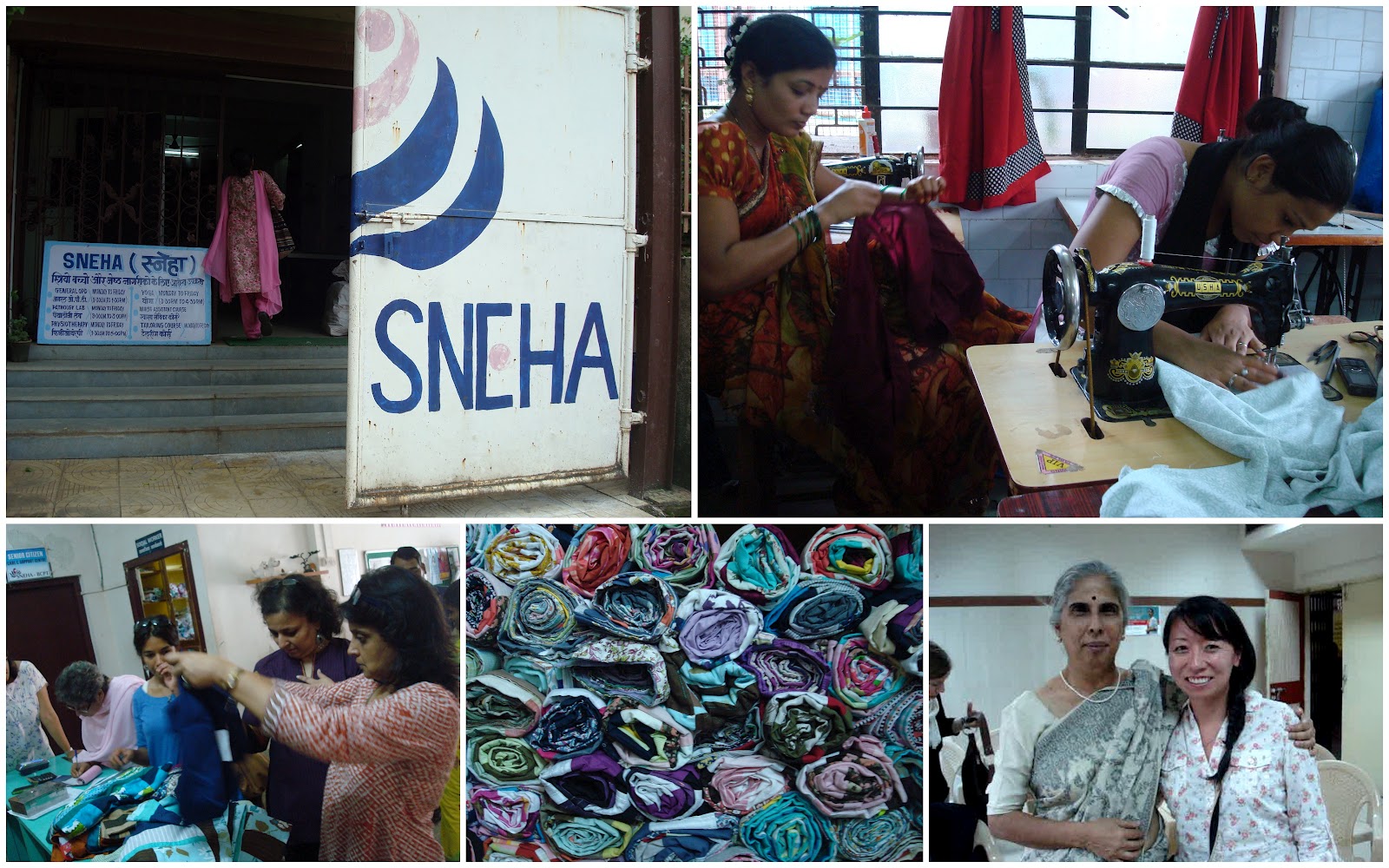
Overview: The organisation SNEHA was constituted by Dr Armid Fernandez in 1999 as an outfit focused on mother and childcare health improvement schemes in more precarious communities.
Mission: SNEHA works to create a healthier society by addressing public health issues related to nutrition and overall mother and child health.
Programs:
- Scheme for Motherhood Health: Conducts sessions of prenatal medical care and gives nutritional advice and counselling to pregnant females.
- Child Health Programmes: It operates a few programs related to immunisation, growth monitoring, and health education for mothers.
- Training for Local Women as Community Health Workers: SNEHA provides training to women from the same community for operating health programs for their respective locality.
Collaboration with Government: SNEHA works in partnership with the government health departments to implement better public health initiatives. Their collaboration also includes conducting national health campaigns and policy advocacy in maternal and child health.
Website: https://www.snehamumbai.org/
Pratham
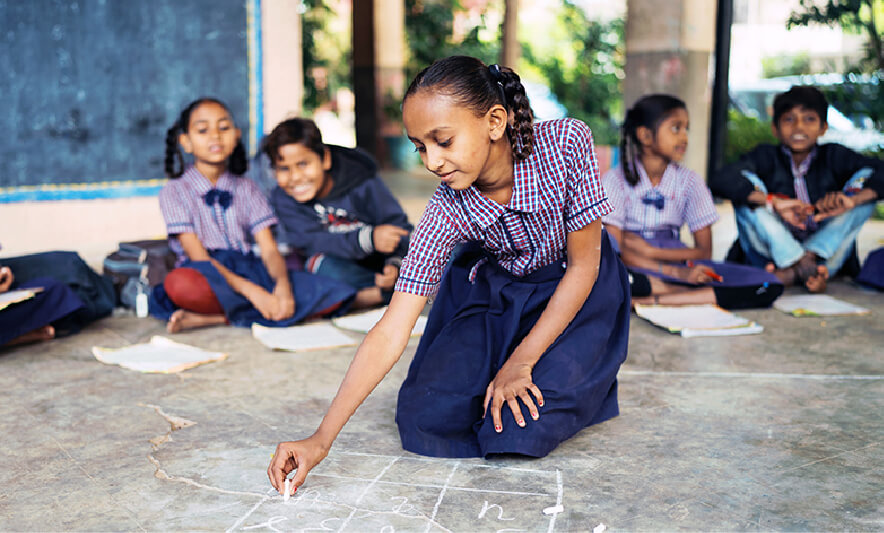
Overview: Pratham is one of India’s largest NGOs working to upgrade poor children’s education standards in the country. Since its start in 1994, Pratham has appeared to be a very popular reforming revolution in India’s education sector.
Mission: Pratham believes in ensuring that there is good-quality education for the sake of every single child so they can enhance more about their skills for a better life.
Programs:
- Read India Programme is the flag bearer program intended to improve child literacy through innovations in teaching processes and community involvement.
- There are vocational skills developed for children who are in their youth that could enhance the level of employment of entrepreneurs.
- On its part, Pratham focuses on research pertaining to educational policies while advocating to alter the approach that has the propensity to cause this stagnancy.
Collaboration with Government: Pratham works in partnership with government bodies at state and national levels to implement education initiatives. Their cooperation involves participation in government-led programs that seek to improve the rate of literacy in children.
Website: https://www.pratham.org/
Magic Bus

Overview: Magic Bus is a nongovernmental organisation using sports as a tool for social change. The organisation was started in 1999 and mainly deals with the mentoring of children and youth through sporting activities.
Mission: Magic Bus aims to break the vicious cycle of poverty by equipping children with life skills by playing sports and providing mentorship.
Programs:
- Life Skills Training: The organisation runs workshops to impart life skills like leadership, teamwork, and communication through sports.
- Education Support Programs: Magic Bus offers educational support to children, helping them stay in school while developing their skills.
- Youth Employment Initiatives: The NGO offers vocational training programs aimed at enhancing employability among youth.
Collaboration with Government: Magic Bus works with government schools and local authorities to deliver its programs effectively. Their partnership ensures that sports are integrated into the school curriculum and students are kept fit.
Website: https://www.magicbus.org/
Apnalaya
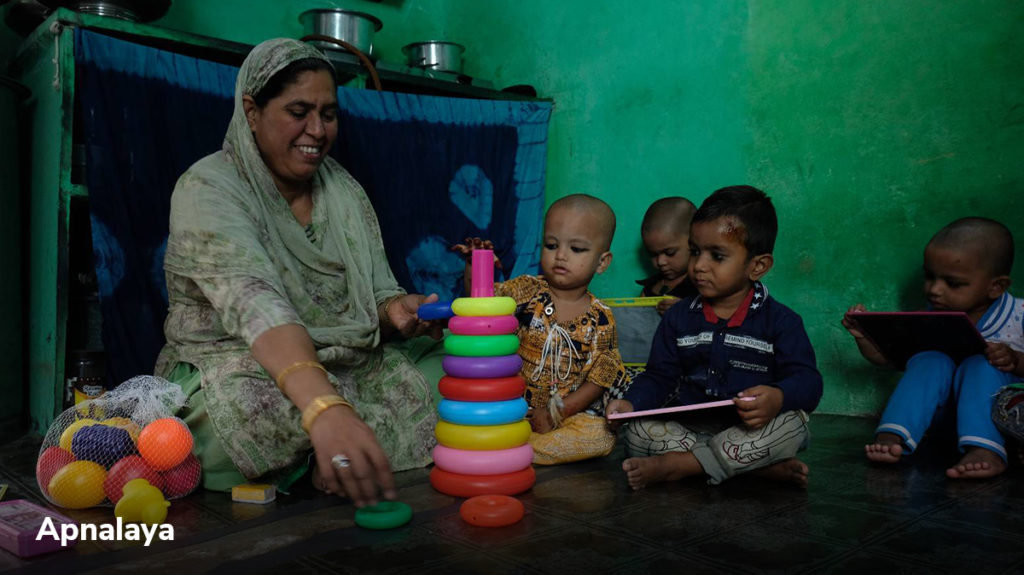
Overview: Apnalaya has been operational in the slums of Mumbai since 1985. Organisations have operated under the streams of health, education, livelihoods, and women’s empowerment.
Mission: Apnalaya will strive for sustainable change through education, health access, and income generation in deprived communities.
Programs:
- Health programs: provides medical services, hygiene, nutrition, and preventive healthcare.
- Education initiatives: They run learning centres where children from families with low incomes may get supplementary education.
- Livelihood Programs for Women: Apnalaya offers skill development training to women to increase their employability or to start their entrepreneurial ventures.
Collaboration with Government: Apnalaya works with local government agencies to successfully execute community health programs. It collaborates with the government and other stakeholders on initiatives that aim to alleviate the living conditions in slum areas.
Website: https://apnalaya.org/
Teach For India

Overview: Teach For India is a part of a global movement which is working to eradicate educational inequity. It started recruiting young leaders for teaching in the under-resourced schools of India in 2009.
Mission: This mission by Teach For India is to offer high-quality education to all children irrespective of their background and also help build leadership among professionals.
Programs:
- Fellowship Program: Teach For India recruits fellows from all walks of life. Fellows spend two years of their lives teaching in low-income schools.
- Leadership Development: This fellowship program offers the chance to develop the leadership skills of fellows while helping make students’ lives a little brighter.
- Community Engagement: Fellows work with parents and community members to create an ecosystem that supports the education of children.
Collaboration with Government: Teach For India partners with government schools to implement its fellowship program effectively. This collaboration helps bridge gaps in educational resources while providing additional support where needed most.
Website: https://www.teachforindia.org/
United Way Mumbai
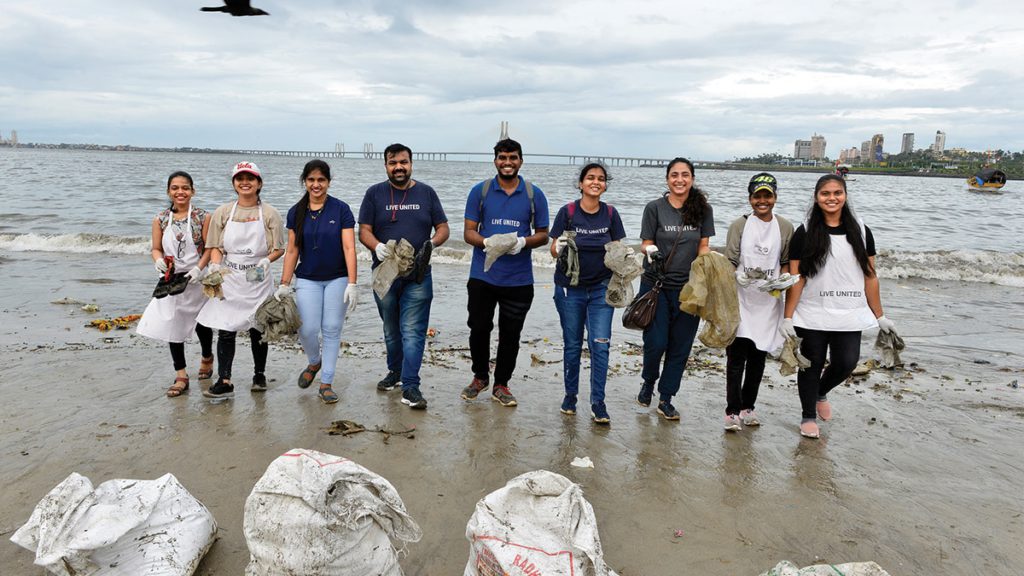
Overview: United Way Mumbai is a part of the global movement of United Way, which makes communities move toward positive change. It was established in 2001 and focuses on different social issues that bother the urban population.
Mission: The mission of United Way Mumbai is to prepare several lives to improve through mobilising the caring power of communities across NGOs, corporations, individuals, and governmental agencies.
Programs:
- Community development: This includes doing work on various issues in society, especially on access to education, provision of health-care delivery, generation of income opportunities of targeted groups and relief work mainly in terms of resource mobilisation in situations of natural calamity or artificial disaster among vulnerable sections.
- Corporate Social Responsibility (CSR) Partnerships: United Way has partnerships with many corporations, and they support CSR projects that address community needs adequately.
Collaboration with Government: United Way Mumbai collaborates with government agencies in relief efforts during disasters and engages these governments in discussions on strategies regarding the development of communities based on need assessments conducted through research carried out periodically within targeted populations served directly impacted positively by these collective endeavours undertaken together moving forward into the subsequent phases of the development journey ahead.
Website: https://www.unitedwaymumbai.org/
Challenges Confronting NGOs
Though NGOs in Mumbai have made significant contributions, they face several challenges that can hinder their operations:
- Funding Challenges: Many NGOs face funding instability due to inconsistent sources of funding. Dependence on donations from individuals or corporations can create financial instability. Moreover, competition for grants from governmental bodies or international organisations is high.
- Regulatory Challenges: The bureaucratic structure does not necessarily favour the progress of NGOs, especially in the implementation of projects and raising funds. Intricate regulations concerning foreign funding, including those provided under the Foreign Contribution Regulation Act, therefore pose an obstacle to organisations that rely on international donations.
- Public Perception: Due to issues of transparency and effectiveness, some segments of society view NGOs with scepticism. Some high-profile scandals involving some organisations have caused alarm among potential donors and beneficiaries.
Future Directions
Strengthen Capacity Building Initiatives
Invest in capacity building in the NGO sector to ensure that operational efficiencies and accountability improve. This can be done through;
- Training Programs: Conducting project management, financial literacy, and advocacy workshops to empower NGO staff.
- Resource Mobilization: Helping NGOs develop grant writing skills as well as strategic partnerships for sustainability.
- Technology Integration: Introduce digital tools in operations to smoothen it and enhance the delivery of services
Enhance Public Awareness Campaigns
Raising public awareness about the roles of both government and NGOs can be used to foster community involvement and participation in uplifting marginalised groups. Some strategies include:
- Community Engagement: Workshops and events to educate citizens about available services and the importance of civic participation.
- Educational Partnerships: Working with schools to incorporate social issues into curricula, encouraging youth involvement in community service.
- Media Collaboration: Public Service Announcements with media outlets for social issues awareness and promotion of volunteerism.
The NGOs in Mumbai have become a beautiful tapestry of activities for addressing the social problems in the city. In due course of time, these organisations, through collaborations with government departments and community-based initiatives, have helped play significant roles in advocating for social justice and ensuring sustainable development across various sectors, including education and healthcare.
As we continue navigating challenges posed by urbanisation & socio-economic disparities, it’s crucial we recognise the importance of having strong networks established prior to a crisis occurring, enabling rapid response capabilities and effectively addressing urgent needs arising unexpectedly!
By donating money or offering time and resources to these NGs, one may help in the development of a more just society, ensuring brighter futures for everyone who calls this vibrant city, which has endless opportunities within the reaches of its energetic cityscape home.
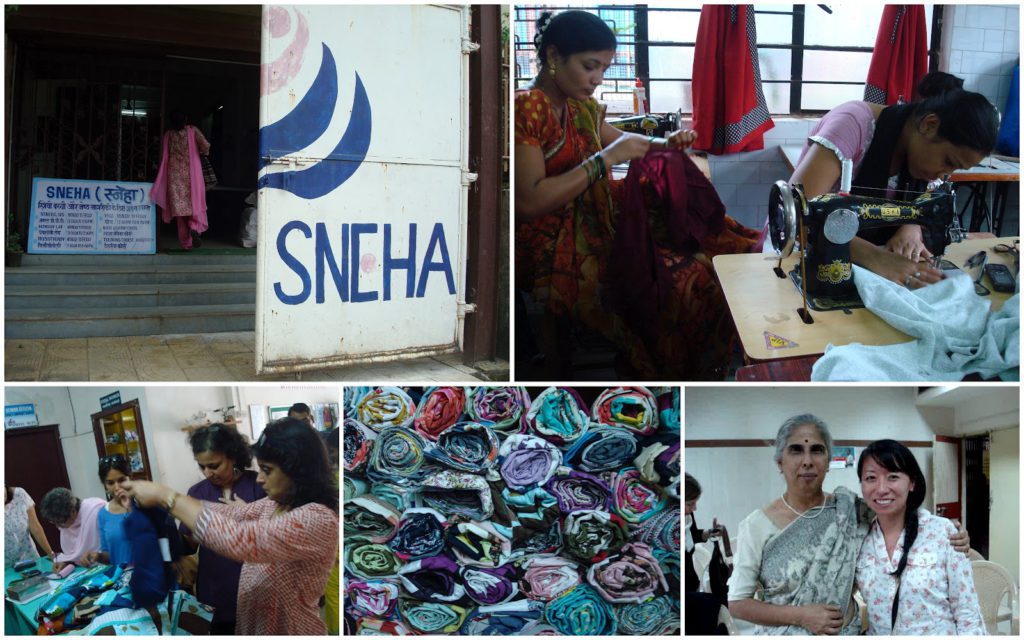
Leave a Reply